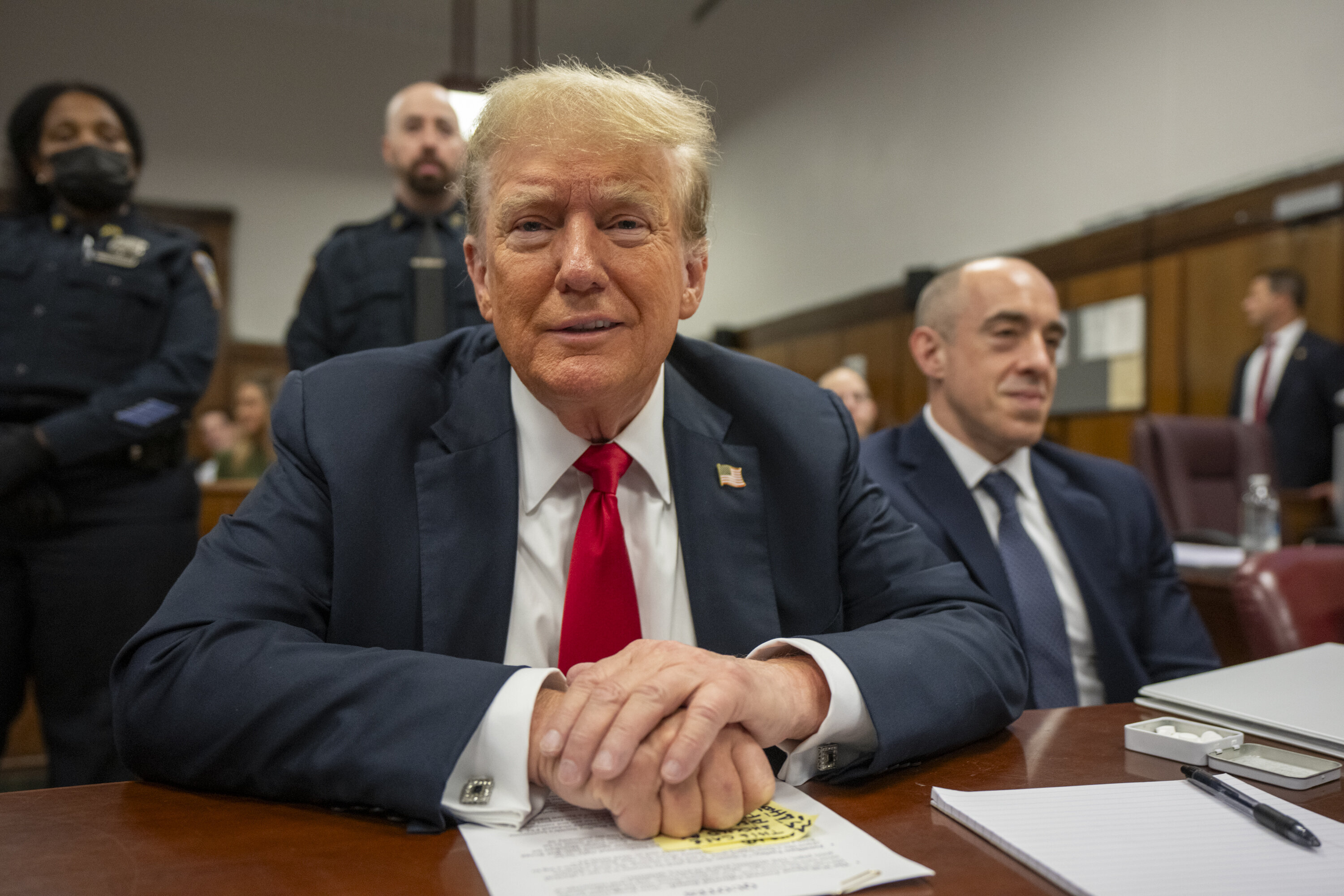Preparing For A Trump Return, EPA Workers Secure ‘Scientific Integrity’ Protections

Donald Trump’s presidential administration was infamous for meddling in scientific research to achieve its preferred policy outcomes. But now employees at a crucial federal agency are trying to guard themselves from political intrusion in the event that Trump returns to the White House.
The union representing 8,000 workers at the Environmental Protection Agency just bargained a contract that includes what it calls “groundbreaking” protections for “scientific integrity.” The agreement assures that workers can report any abuses without fear of “retribution, reprisal, or retaliation,” and sends related disputes to an independent arbitrator rather than a political appointee.
Advertisement
The goal, the contract states, is to “prevent inappropriate interference in scientific work.”
Marie Owens Powell, the president of the American Federation of Government Employees Council 238, said she hopes the new protections embolden EPA workers to stand up when they believe science is being undermined for political reasons.
“The agency agreed the goal was to empower management and staff to prevent inappropriate interference in scientific work,” said Powell, a gas station storage tank inspector who works for the EPA in Pennsylvania. “You can’t be forced to change data or the interpretation of the data, as long as it’s based in sound science.”
The EPA said through a spokesperson that it was “pleased” to have reached the agreement.
“Scientific Integrity was one of several articles the parties agreed to include in the new [contract] for the first time,” the spokesperson said in an email. “This new article clarifies for AFGE [union] employees EPA’s commitment to a culture of scientific integrity.”
Powell said the union’s 13 locals representing EPA workers voted unanimously to ratify the contract, which also includes measures to promote diversity in hiring and promotions, as well as protections for remote work and flexible scheduling.
Advertisement
Trump officials routinely sidelined researchers, shut down studies and rolled back regulations supported by science as they enacted their business-friendly agenda. They reversed more than 100 federal rules related to the climate and the environment, and many scientists chose to leave agencies as they felt their work was being undermined.
Morale was so bad at the EPA that employees started calling for a “bill of rights” to protect staffers.
As one employee told HuffPost at the time, “There’s been an attack on the EPA from a lot of directions ― an attack on EPA science, an attack on our regulations, and an attack on the workers who actually do the work.”
Trump, the presumptive GOP nominee to run against President Joe Biden this fall, has been promising wealthy donors, including fossil fuel executives, that he will pursue their favored policies and peel back environmental regulations if he retakes the White House, The New York Times and The Washington Post have reported.
If he wins, Trump is expected to kill many of Biden’s policies related to climate and the environment — and bring back a more combative approach to labor relations within federal agencies.
Advertisement
Shortly after taking office in 2017, Trump issued a series of executive orders meant to weaken federal unions and make it easier to fire government workers. After a judge struck down key portions of those orders, Trump’s political appointees tried to accomplish the same aims by rewriting collective bargaining agreements over unions’ objections.
In the case of the EPA, Trump officials broke off negotiations with its union and tried to unilaterally implement their own contract to loosen job protections. But if Trump returns to the White House, EPA employees would be in a stronger position this time by having their newly ratified contract in place, Powell said.
She noted that the EPA has its own scientific integrity policy to “protect against scientific misconduct” by employees, managers or agency leadership. But the union believed it was important to codify protections in its contract so that workers would have less fear of retribution if they spoke up.
“I never want to say we’re completely guaranteeing there wouldn’t be, say, retaliation against an employee for asserting scientific rights,” Powell stated. “But this is something of substance [so] that we can fight it. I think that’s the best we can do at this point.”
Advertisement

Comments are closed.